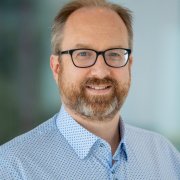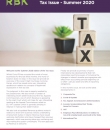In a previous tax issue we discussed the Action Plan adapted by the EU Commission to reboot the current EU VAT system and in particular the four “quick fixes” that were introduced with effect from 1 January 2020. Part of this plan was the proposed extension of the Mini One Stop Shop (MOSS) to “distance sales”.
The new rules were due to come in effect from 1 January 2021. However, on 8 May 2020 the Commission proposed to postpone the introduction of new e-commerce VAT rules by six months to 1 July 2021 because of the practical difficulties created by the lockdown measures taken to contain the coronavirus pandemic.
The new rules are referred to as the VAT e-commerce package and aim to significantly expand the scope of the MOSS scheme which currently applies to business-to-consumer (B2C) supplies of telecommunications, broadcasting and electronic (TBE) services in the EU. The new One Stop Shop (OSS) will now include other B2C services and B2C supplies of goods (distance sales).


VAT in the Digital Age (ViDA) 516.89 KB
On 25 March 2025 the ViDA package was published in the Official Journal of the EU marking a pivotal moment for VAT in the EU. ViDA is a set of legislative reforms aimed at modernizing the EU's VAT system to better align with technological advancements and address challenges such as VAT fraud and the platform economy. The ViDA updates aim to create a more efficient and business-friendly VAT system, benefiting SMEs by reducing administrative burdens and compliance costs. Irish Revenue conducted a public consultation from October 2023 to January 2024 to gather taxpayer insights. The consultation emphasised the practical concerns, as well as proposals for real-time digital VAT reporting and electronic invoicing and it is expected that this will be considered when Irish Revenue publish related rules applicable in Ireland. The package will officially come into force on 14 April 2025 with implementation timelines extending into the 2030s.
Download
Irish VAT, UK VAT & Customs Considerations Presentation - RBK Bishop Fleming Swiftfile 1.66 MB
RBK, Bishop Fleming and Swiftfile presented at a webinar on 2nd March 2021 were they shared practical insights and provided guidance in relation to Irish VAT, UK VAT and Customs.
Download
Tax Issue - Summer 2020 137.61 KB
Whilst Covid-19 has occupied the minds of most businesses for the last three months, the world of taxation does not stop. In this issue we provide an overview of the recent High Court case involving Perigo, which has raised some very interesting questions in relation to concepts of legitimate expectative in Irish tax law. We also review a number of interesting recent determinations of the Tax Appeals Commissioners. We look at updated Revenue guidance notes in relation to short term business visitors undertaking employment duties in Ireland. Finally we provide a summary of some international tax developments that Irish corporates need to be aware of including the changes in Ireland’s transfer pricing regime with effect from accounting periods beginning on or after 1 January 2020 and DAC 6 reporting obligations.
DownloadOur offices are strategically located to service our market and are easily accessed from any location nationwide.
Termini,
3 Arkle Road,
Sandyford, Dublin,
D18 C9C5, Ireland
RBK Incorporating OMC O'Malley & Company Limited,
Upper Chapel Street,
Castlebar, Co Mayo,
F23 PF21, Ireland
RBK House, Irishtown
Athlone,
Co. Westmeath,
N37 XP52, Ireland
RBK Incorporating MCP Accountants,
Breaffy Road,
Castlebar, Co Mayo,
F23 DY67, Ireland
